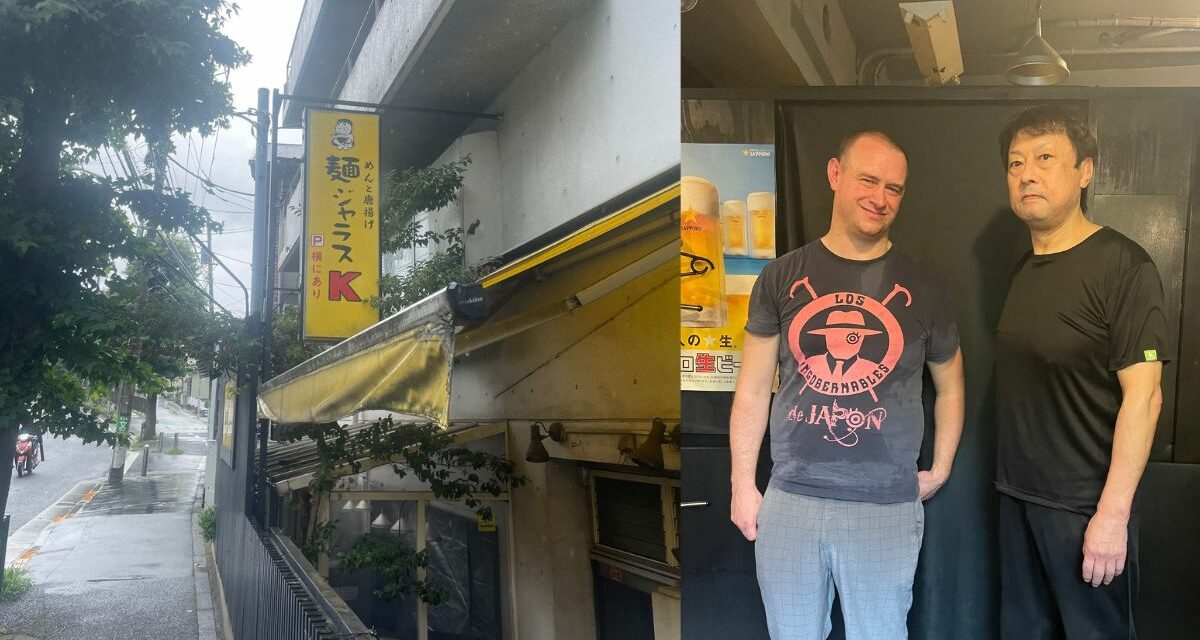Toshiaki Kawada’s journey from the squared circle to owning a ramen restaurant seems improbable on the outset, but the passion that made him one of puroresu’s all time greats is evident in his new vocation.
Throughout his wrestling career (and since) Toshiaki Kawada had a reputation for grumpiness. In his book, he recalled being gently admonished about this by AJPW promoter Shohei ‘Giant’ Baba after a fan wrote to him, complaining that Kawada did not smile in a commemorative photo.
As a translation provided online by Bahu revealed, Kawada believed his scowl was part of a persona he created for himself.
“I couldn’t argue with Baba-san, but I couldn’t accept the president’s order. I had spent years creating the character of ‘unsociable, clumsy, and brave’ but if I smiled in the commemorative photo, that image would all be destroyed, and it would be a matter of life and death if my personality was lost because of it.”
“With hundreds of thousands of fans all over Japan, how can I pick out just one letter and be swept away by it?”
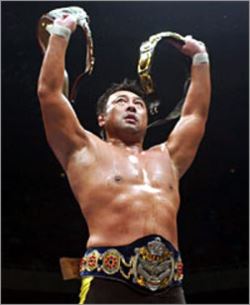
Toshiaki Kawada
During a rare trip to America for the Starrcast convention, Kawada posed for pictures with fans and fellow wrestlers. He rarely smiled during these exchanges, although he seemingly made exceptions for former opponent Rob Van Dam and pro wrestling expert Chris Hero.
Kawada, it has been noted, has another side to his personality. In an interview conducted my book The Muto Years, Taiyo Kea recalled running into Kawada in a hotel after the latter had left All Japan to become a freelancer.
“To tell you the truth, after the split… He kind of changed. He became nicer,” Kea said.
“We used to run into him [at the hotel when he was in Hustle].”
“He called me up, ‘Hey Kea, what are you doing? Come downstairs. You want a beer?’”
“I’m thinking, What’s going on?”
“He invited D’Lo Brown. We all started drinking together. He was talking to us in English.”
“His English was pretty good. There was a change in him.”
“After that, I have a lot of respect for him.”
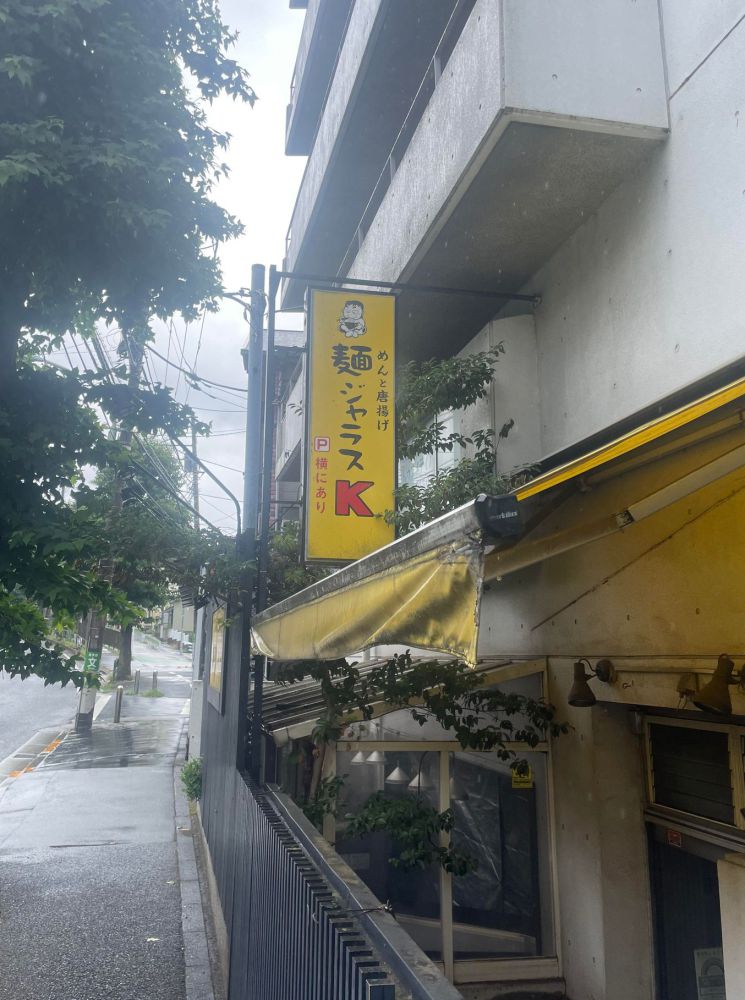
Toshiaki Kawada’s noodle house. Photo by Jonathan Foye
THE JAPANESE SOUP NAZI?
Toshiaki Kawada’s apparently grumpy demeanor has recently been the stuff of lore when it comes to his ramen restaurant, Menjarasu K. The store is renowned for its quality ramen, but also for a series of rules Dangerous K introduced, with people likening him to Seinfeld’s Soup Nazi.
According to veteran wrestling journalist and historian Fumi Saito, opening a ramen store was a long-held “secret dream” for Toshiaki Kawada. While the five-time Triple Crown Heavyweight Champion never retired, in 2010 he stopped taking wrestling bookings, quietly exiting the industry with no retirement match or ceremony.
In an interview with Jushin Thunder Liger, Kawada attributed his opening the store to Mitsuharu Misawa’s untimely death a year prior to his wrestling departure.
“After Mitsuharu Misawa passed away, I lost my goal,” Kawada told Liger, in a conversation for Liger’s YouTube channel, translated online by Metal Noah.
“My heart has left wrestling.”
The ramen store, then, is a new passion project for Kawada, who has clearly put a lot of time and energy into perfecting his craft and ensuring the store is a success.
In a Gandai media article Kawada wrote when he launched Menjarasu K (translated by FightOpinion), he said the store’s rules were for a good reason: the majority of ramen joints fail within their first few years, a statistic that dates back even before the COVID-19 pandemic made owning a business even riskier. The edicts he introduced were not arbitrary, but ensure people get in, get fed, and get out in a timely manner, ensuring Kawada can serve as many patrons as possible.
This, Kawada noted, is in sharp contrast to how a lot of ramen stores operate. Allowing big lines to form outside to give the impression a place is in demand is part of a strategy Kawada has rejected.
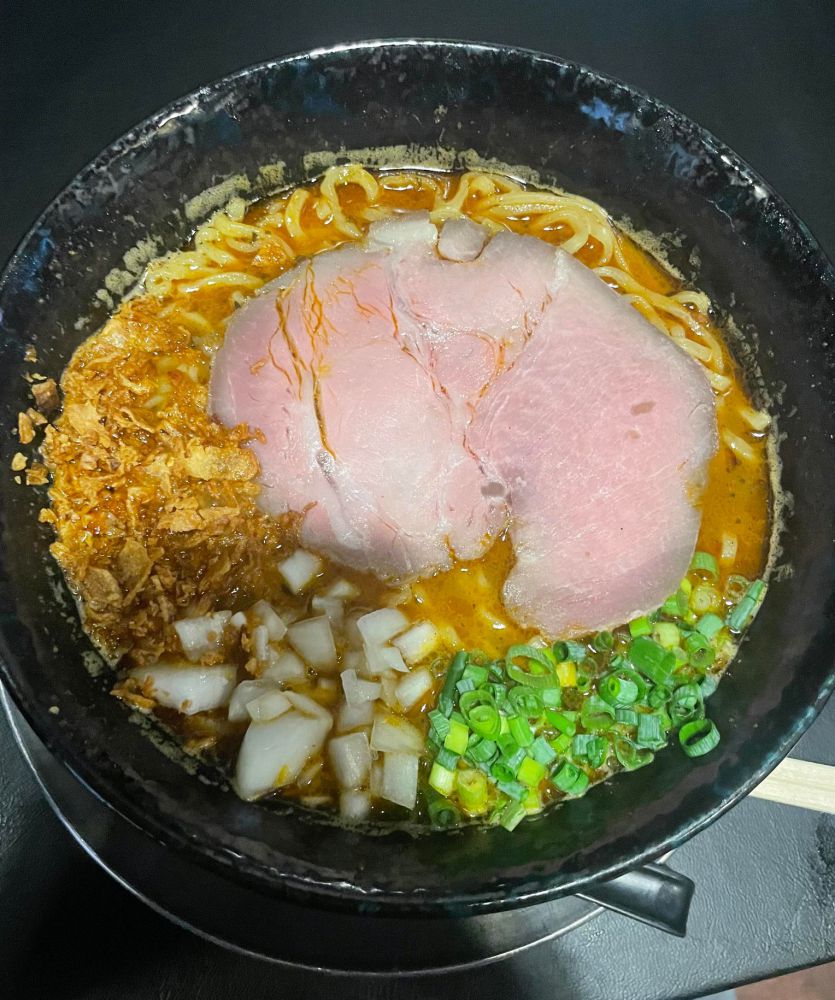
Jonathan Foye’s meal at Toshiaki Kawada’s noodle house.
THE RAMEN HOUSE RULES
Kawada’s ramen restaurant, Menjarasu K, is in Tokyo’s Setagaya neighborhood. The building is somewhat unassuming, noticeable by the yellow sign in front with the logo featuring a cartoon Kawada.
The restaurant rules are straightforward. Near the entrance, there is a machine typical of any ramen shop where customers make their choices. All text is in kanji, so anyone who cannot read Japanese will be best off using the Google app to translate. Arrivals must disinfect their hands with hand sanitiser provided. Patrons are to sit in silence while they eat (unless you arrive with other people). While Kawada is happy enough for people to take photos of their food, signs inside request no photos (perhaps so as not to distract him from cooking). The store has some wrestling memorabilia donated by puro stars past and present and small replicas of every title Kawada held.
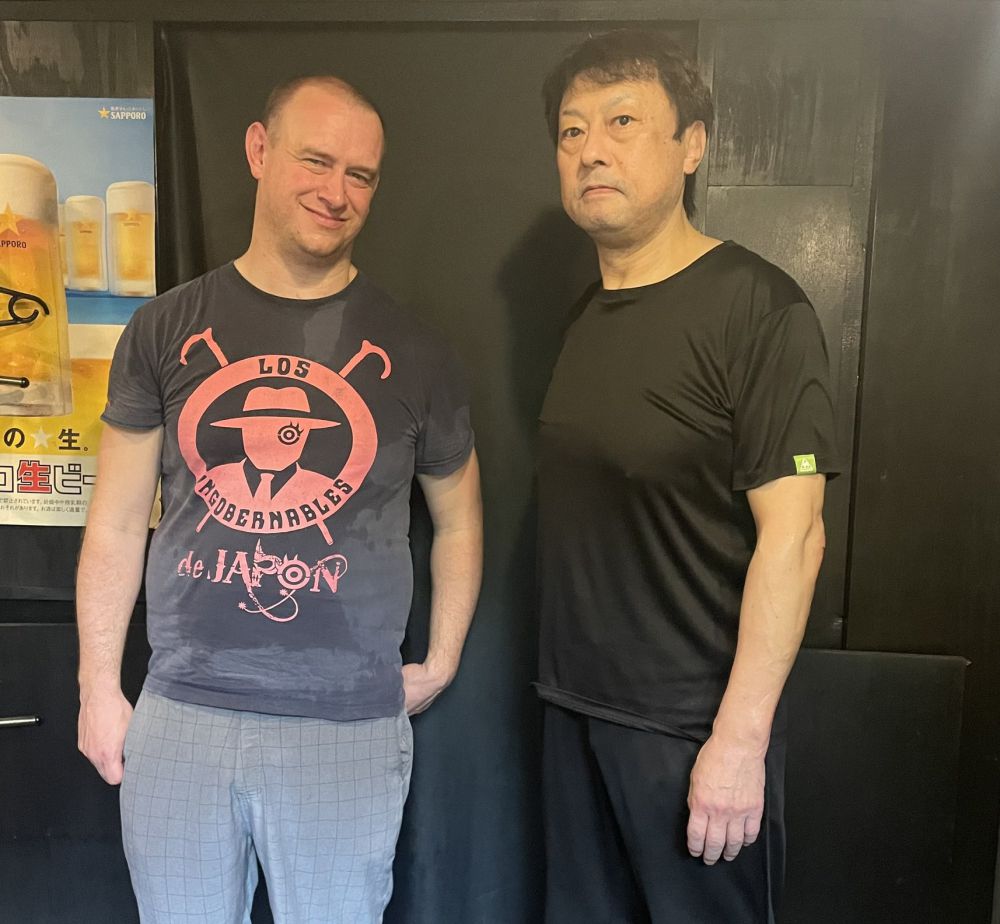
Jonathan Foye, wet after coming in out of the rain, and Toshiaki Kawada.
Kawada will take photos with anyone who buys the store T-shirt. When SlamWrestling.net took a picture with him, he did not smile, but did ask if the photo in question was alright. For all of his reputation, Kawada comes across in person as generous with his time and accommodating to his customers. The same passion he showed in the ring is evident in how he approaches his new calling.
